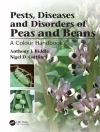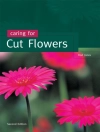Essential oils
This exciting new volume, written and edited by some of the world’s foremost experts in the field, provides up-to-date information about the chemical structure of essential oils, as well as their therapeutic and biological actions. It defines their functional uses while evaluating the advantages and disadvantages of their application in various sectors.
Essential oils have been used by global communities for centuries, for different purposes such as medicinal, flavoring, preservatives, perfumery, aromatherapy, dentistry, cosmetics, insecticide, fungicide, and bactericide, among others. Essential oils are natural and biodegradable substances, usually non-toxic or with low toxicity to humans. Essential oils are botanical products that have volatile nature, known for their special odor, and found to be effective in the treatment of oxidative stress, cancer, epilepsy, skin allergies, indigestion, headache, insomnia, muscular pain, respiratory problems, etc. Essential oils principally enhance resistance to abiotic stress and protection against aquatic herbivores. They possess antimicrobial, antifungal, antitumor, and antioxidant properties.
Essential oils are known to be volatile and susceptible to degradation from various ambient conditions, including temperature, air, light, and humidity, which limits their applications. Encapsulation is a proven technique that can protect essential oils and enable their use in various applications. This book aims to provide current knowledge on the chemical structure, therapeutic, and biological activities of essential oils, as well as to describe their functional uses and assess the benefits and drawbacks of their usage in various fields. By exploring the latest research on essential oils and their encapsulation, this book offers valuable insights and practical guidance for anyone interested in the science and application of these fascinating compounds.
Tentang Penulis
Inamuddin, Ph D, is an assistant professor in the Department of Applied Chemistry, Aligarh Muslim University, Aligarh, India. He received his masters and Ph D in applied chemistry from Aligarh Muslim University (AMU), India. He has published 165 books with various publishers, including Wiley-Scrivener, and he has 210 research articles to his credit. He has years of research experience and has received numerous awards and grants throughout his illustrious career. He also is an associate editor for several scientific and technical peer-reviewed journals and has been a guest editor as well. He has also worked as a postdoctoral fellow at the Center of Research Excellence in Renewable Energy, King Fahd University of Petroleum and Minerals, Saudi Arabia, and is a life member of the Journal of the Indian Chemical Society.
Tariq Altalhi, Ph D, is an assistant professor in the Department of Chemistry at Taif University, Saudi Arabia. He received his doctorate degree from University of Adelaide, Australia in the year 2014 with Dean’s Commendation for Doctoral Thesis Excellence. He has worked as head of Chemistry Department at Taif university and Vice Dean of Science College. His group is involved in fundamental multidisciplinary research in nanomaterial synthesis and engineering, characterization, and their application in molecular separation, desalination, membrane systems, drug delivery, and biosensing, and, in 2015, one of his works was nominated for a Green Tech Award from Germany, Europe’s largest environmental and business prize, amongst top 10 entries.
Jorddy Neves Cruz is a researcher at the Federal University of Pará and the Emilio Goeldi Museum. He has experience in multidisciplinary research in the areas of medicinal chemistry, drug design, extraction of bioactive compounds, extraction of essential oils, food chemistry, and biological testing. He has published several research articles in scientific journals and is an associate editor of the Journal of Medicine.












